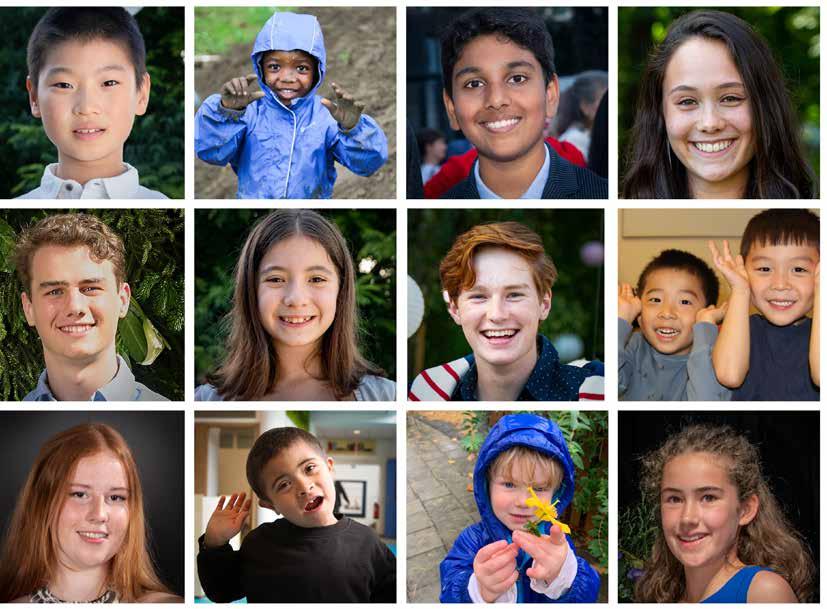
10 minute read
BSB Book Festival
Introduction
Melanie Warnes, Principal
Advertisement
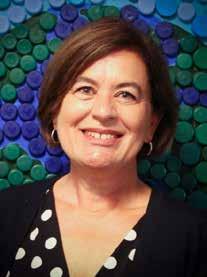
It may be an obvious, slightly clichéd thing to say, but schools are much more than the buildings that house those who teach and those who come to learn. A school is a community, it is a family, a support structure. In short, a school is its people – not just those who attend every day but those who are touched by what we do, included in what we do and those who are invited to be part of it. A school lives and thrives on the energy created by these interactions; those which take place between the student body and the staff and those between BSB and the world beyond the gates. As a community, as a family, we have faced some difficult and unsettling times since our last edition of Tapestry. But because we are a community, a family, we have pulled together and harnessed that energy to go forward, to progress and grow even when it seemed hard.
That energy we create together, that belief in what we do and the commitment to what we want to achieve has been a driving force for BSB over the past two years, during which we all faced unprecedented challenges. These challenges may have taught us to be more cautious when it comes to the future, now we have seen what unanticipated obstacles can be thrown into our path and how our lives can be turned upside down in the blink of an eye. But we have also seen how, as a community, we have all risen to these challenges and have overcome them with courage and determination.
There have been so many examples of our students and staff displaying phenomenal resilience, courage and creativity under difficult circumstances in recent times, many of which are detailed in stories featured here in this magazine. It is in times such as these that our BSB values and our Guiding Statements come to the fore in the actions of those who live and work together here at the school.
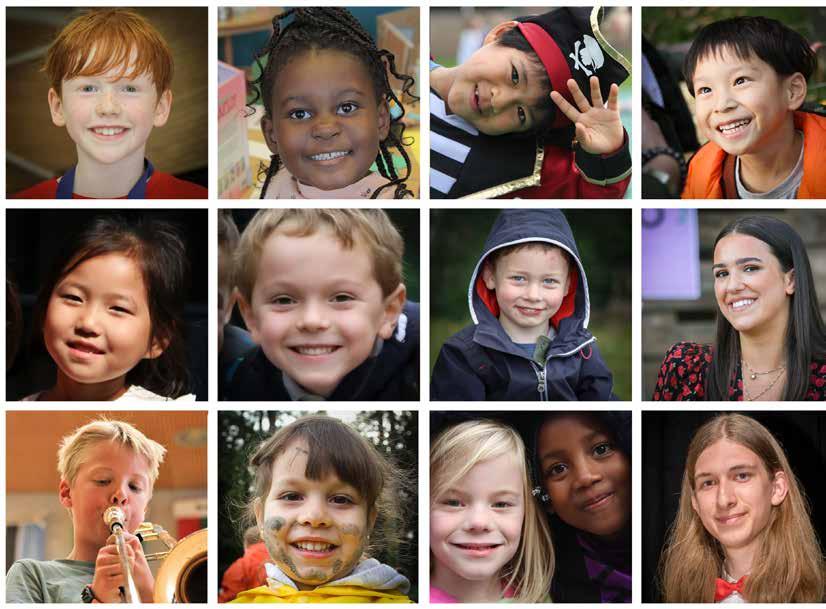
We’ve seen the very best of our confident, caring and courageous students as they have risen to the challenges of the modern world and the unexpected pitfalls that can occur; we’ve seen the flexibility and determination of all our staff to maintain the highest quality of teaching, learning and support that is second to none despite the unparalleled challenges they have faced, and together we have remained a welcoming and nurturing community where those seeking help can find a home built on mutual respect. We pride ourselves on our aim of being an educational force for good, and I feel we have lived up to that statement more than ever over the past few months.
The stories that you will read here are just a small collection of those we could tell about the incredible efforts that everyone associated with BSB have put in over the last two years. I hope that, in addition to the wonderful examples of everyday bravery and dedication you will see in every article, you will get a sense of the pure joy and boundless enthusiasm for life and learning that typifies BSB.
Epic journeys
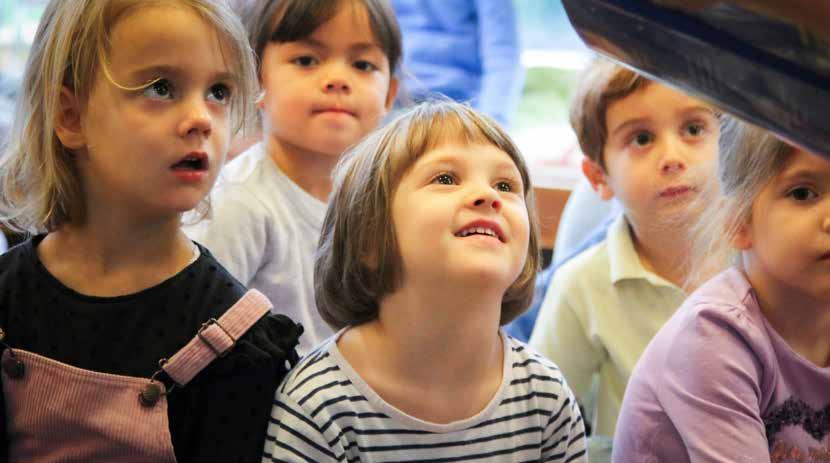
BSB’s Book Festival makes a comeback
After being postponed for a year, BSB’s Book Festival made a triumphant return in October 2021 with two colourful weeks of events featuring a host of international authors, illustrators, and poets.
The theme was ‘Epic Journeys’ and, following that, one of the objectives of the 2021 Book Festival was to inspire the students to immerse themselves in a world of words, whether it be through reading and discussing the books of others, creating their own, or just dressing up for fun as their favourite literary character. The festival, which ran from 11-22 October, was not only about celebrating the unique way that books create space for deeper, more focused connections and how they take us on exciting and exotic adventures in our imaginations but also how they challenge us to grapple with new ideas that may be difficult to understand or uncomfortable to confront. Through a diverse selection of special guests, students were given the chance to connect with themes, with characters, with plots, and with complex arguments.
In addition, the Festival organisers this year strived to deliver a programme that was inclusive and representative, whether that be of age, ethnic origin, those with additional needs, religious and political belief, sexual orientation, or gender identity. While the organisers were presented with complex and unique challenges when it came to arranging sessions with speakers, those challenges actually helped to create one of the most internationally diverse line-ups in recent memory.
“When we asked ourselves how the festival would look, we really had to consider what was possible in terms of getting people on site,” said Clare Gunns, Faculty Leader English & Media and one of the Festival’s main organisers. “So, we decided that we would do almost all of it online this time and try and get local authors on site, regulations permitting. We invited Belgian-born author and illustrator, Pascal Lemaître for our French speakers and went looking specifically for a poet, who could speak Dutch, French and English who would be able to come on site, if possible, and that was Inke Gieghase.”
“We discovered that this hybrid approach gave us many different choices, that we could actually have people on site creating that excitement of being live here in class, while we’ve also been able to get people from all over the world in a way that we have not been able to before,” added Clare. “For example, we had a former BSB student talking to us about creative writing and self-publishing from Fiji. And this approach also helped us to get big names like former National Poet of
Scotland, Jackie Kay and British author and actor, Charlie Higson, who was impossible to pin down to come out here in person. But suddenly after doing a couple of sessions with us online, he’s like, ‘I’d love to come to Brussels next time. Just let me know!’”
Ceri Seymour, curriculum leader for Primary English department, also spoke positively of the opportunities that came from this adversity which the restrictions has caused. “Although it was disappointing that we could not meet all the authors in person, the children still enjoyed their interactions and loved asking questions via video call,” she said. “We were lucky that the technology worked – almost – flawlessly for the duration of the festival and we hope that having access to this technology will allow us to invite guests from further afield to enhance different areas of our curriculum in the future.”
British author Nikesh Shukla, for example, spoke to classes from Years 9 -13 on how his experience of racism continues to shape his writing and his life; while Keren David talked about her upbringing in the Jewish Community of Welwyn Garden City, a town just north of London, and explained how, in sessions with classes from Years 7 - 11, she had faced antisemitism throughout her career.
Elsewhere during the festival, Scottish author and poet Jackie Kay fielded questions from a panel of Secondary students and those from students posting in the online chat forum. Jackie talked candidly about growing up as a black, gay woman in Scotland and how the struggles she experienced shaped her writing process and story ideas.
Meanwhile, Flemish poet Inke Gieghase’s sessions brought an extra dimension of gender diversity to the Festival. Inke, who identifies as non-binary, spoke about the challenges they have faced on the periphery of society and how their struggles during their difficult teenage years had infused their later poetry with energy, fire, and hope.
“Inke’s story was incredibly powerful and carried a very positive message for the students,” said Clare Gunns. “Inke didn’t know why they felt like they did until someone said that you don’t have to label yourself, and their life really opened up after that. It’s not necessarily the answer for everybody, obviously. But I think that it was a moment where we understood that there will probably be students who were listening who will take Inke’s words as their own moment of revelation and think, okay, maybe I don’t have to label myself. And I think that that’s really liberating.”
One such epiphany happened after the British writer and illustrator Ed Vere had read from his children’s book How to Be a Lion with groups of students from year one and year two. One student approached her teacher afterwards and said that the message of the book – that there were lots of ways to be a lion – had helped her realise that she could be whoever she wanted to be. The teacher revealed it had been a very special moment between them, for somebody so young, to get the message and understand the choices she had and the power she had to make them.
As well as hearing about powerful personal journeys– and experiencing their own, students were exposed to some of the realities of the world beyond their school and home lives through sessions such as those held by British writer Sita Brahmachari. The Derby-born author’s latest book for children, Where the River Runs Gold, is a dystopian novel about child slave labour and some of the secondary students who have been learning about the genre in their English lesson were surprised to discover that the themes of Sita’s book are not a fictional portrayal of the future but a factual commentary on the present.
“I think it’s really easy to say, ‘Oh, that’s in the future, or that was in the past’ when looking at the dystopian genre,” said Clare Gunns. “Instead, we should recognise that lots of children live in the very worst conditions right now. We want our students to understand that this is not a concept happening somewhere else, we want them to be shocked and to want to take action, just as the GIN group discussed with Sita.”
Such interactions were not uncommon during the two weeks of the Festival with students often taking their ideas from the sessions back into class and diving into deep analysis with their teachers.
Of course, while the Book Festival inspired discussions, debates and reflection on
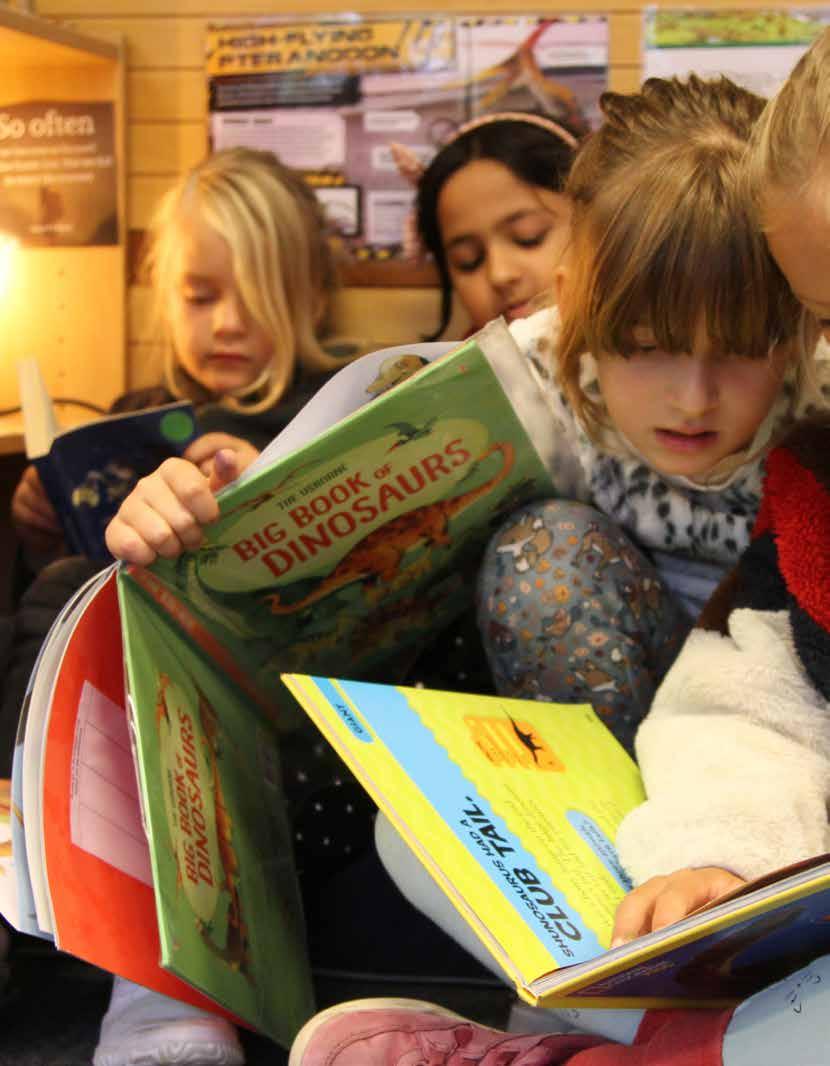
serious topics and themes, there was also a lot of fun to be had.
Kicking off the Festival on opening day, primary school students were invited to come to school dressed as a character from their favourite book. The students were not the only ones to embrace fancy dress. Adult-sized tigers, pirates and other assorted characters were also seen around campus as several of the teaching staff joined in the fun.
A week later it was the turn of the Secondary students to add a splash of colour to the proceedings, with a very impressive turnout on their own Dress Up Day, despite the arrival of some particularly autumnal weather.
Even the wind and rain in the middle of Week 2 couldn’t dampen the indominable spirits of the unshakeable Poetry Slammers going head-to-head for House points. Overseen by Inke Gieghase who acted as compère, poets from Pantlin, Goodman and Firman – supported by their house mascots, braved a boisterous but respectful crowd as well as the blustery weather out on the Chessboard to deliver their own emotive and beautifullycrafted words. In the end, Pantlin poets Lara and Celia both scored 100 points with their winning performances. Goodman’s Oli, and Firman’s Naomi and Abbey came in second, winning 50 points each for their houses. Abdul and Lindsey, both from Goodman, won 25 points each for coming third.
“I was utterly amazed by the talent and bravery that was shown by the students who performed during the poetry event,” said Inke Gieghase. “When I was their age, I had never read one of my writings out loud. And they just did it in front of all these students and teachers. It makes me really happy to see that the next generation speaks up and talks about topics that matter to them.”
“I think it’s vital that schools focus more on letting their students express themselves,” Inke added. “That’s why I can only applaud BSB for organising this event and giving their students a platform to let their voices be heard. Like Audre Lorde said: ‘Poetry is not only a dream and vision; it is the skeleton architecture of our lives. It lays the foundations for a future of change, a bridge across our fears of what has never been before.’ Poetry was a way for










